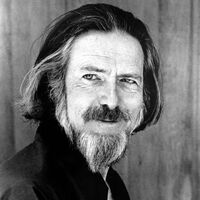
Alan Wilson Watts (6 January 1915 – 16 November 1973) English writer, speaker and self-styled "philosophical entertainer", known for interpreting and popularising Japanese, Chinese and Indian traditions of Buddhist, Taoist, and Hindu philosophy for a Western audience.
English226 Magyar21